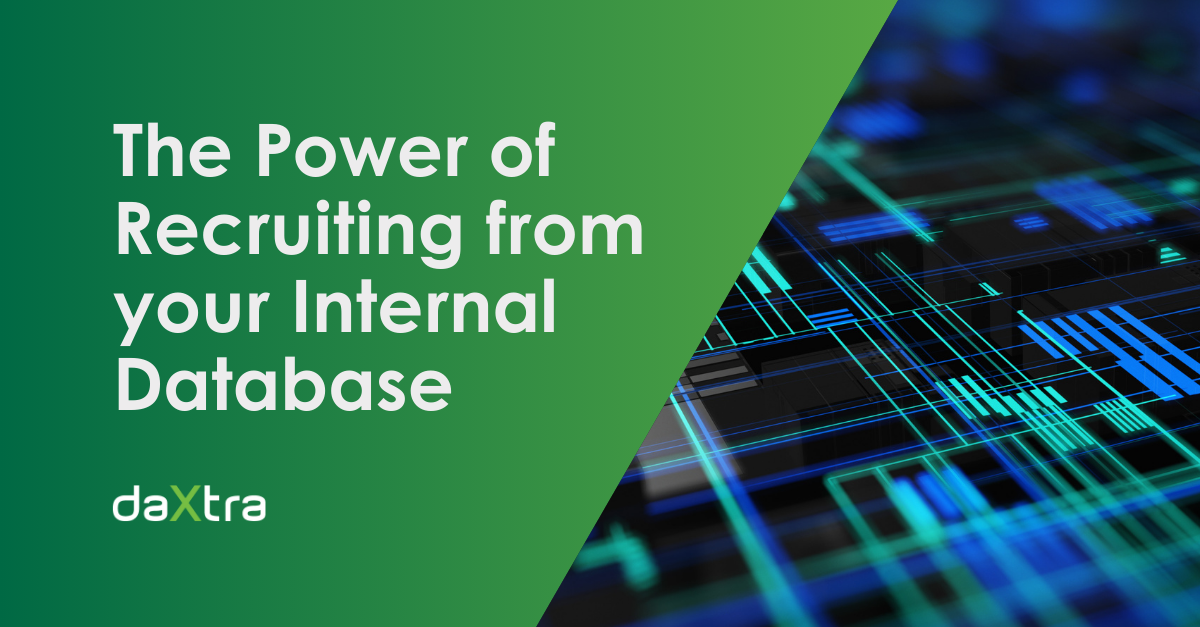As recruiting advances, there are more and more options to help recruiters increase productivity. From tools using automation to data enrichment to AI, it can feel like there are countless ways to improve efficiency. But, there’s one key thing at the core of effective recruiting: the internal database.
If recruiting is a car, an internal database is the engine: it just won’t run without one.
In this article we explain why your internal database is so important, how it compares to online and external recruiting sources and the future of the internal database in recruiting.
The Rise of Online Sourcing and the Value of Recruiters
Sourcing candidates online is undeniably here to stay (LinkedIn alone has over 1 billion members). According to Jobvite’s 2021 Recruiter Nation Report, 33% of recruiters cited job boards and 27% of recruiters cited social media as top sources for quality candidates.
Although social media and online job boards provide an invaluable source of candidate information, they aren’t a catch-all solution to finding top talent. While there are tons of great candidates on social networks, recruiters are especially equipped to quickly find and engage with the right talent for each role, at scale.
To do this, recruiters need specialist knowledge within each sector they work in. They must understand not only the job specifics but also where to source relevant candidates to match the criteria of a particular role (unless they have an AI sourcing tool like Daxtra Search Nexus, which can match directly to the job spec, or suggest related terms that recruiters could search). This makes recruiters valuable partners in tackling the vast number of candidates using social media, job sites and other online sources.
The Challenge of Online Sources
Online sources are inherently competitive. Even with clever search skills, a recruiter who is certain they’ve found their ideal candidate can also be sure the same candidate has been found by several other people.
This places more pressure on recruiters—they have to pinpoint candidates with greater accuracy, engage quickly, and hope that the candidate is actually interested in what they have to offer. Let’s bring back our car metaphor: if recruiting is a car, then engaging, interviewing and placing a great candidate from social is like driving an F1 race.
The Power of the Internal Database
The good news is that recruiters have a valuable tool to assist them in the race: their internal database.
This database offers much more than a candidate’s resume and contact details. It holds comments, notes, and the history of contact between each individual candidate and the recruiter. If a recruiter has spoken with a candidate, notes could describe that interaction, including critical information about the candidate’s long-term aspirations, availability, attitude to opportunities, and past record of applications.
This level of information enables the recruiter to offer each candidate greater value. Instead of just matching resumes to job specs, recruiters can make a thoughtful, personalized match from a valuable and reliable candidate data source.
Enhancing Database Functionality
Having a well-functioning database is well worth the time it takes to maintain it. It becomes a reliable tool—once recruiters know their internal database will provide the right candidates, they will continue to use it, which in turn improves the quality and consistency of data available.
It can help recruiters to monitor their talent pool, provide a jumping-off point for ongoing candidate engagement, and be used as a long-term resource to power their recruiting.
It may sound daunting, but there are actionable steps you can take to ensure your database is functional and helping you make the most of your data—such as utilizing automation to reduce manual upkeep, leveraging candidate search tools and providing ongoing training for your team on how to use the database most effectively.
The Future of Internal Databases in Recruiting
A fully functional internal database is critical for recruiters who want to demonstrate a unique level of service to clients or aspire to deliver a global service that outpaces competition from other agencies, RPOs, and internal recruitment teams. Having a well-maintained database is a key part of a well-rounded recruitment strategy, and it ultimately helps recruiters and candidates alike as they search for the right positions.
Want to know more about ways to enhance your internal database? Take a look at Daxtra Capture or contact us to discuss how Daxtra can help.



